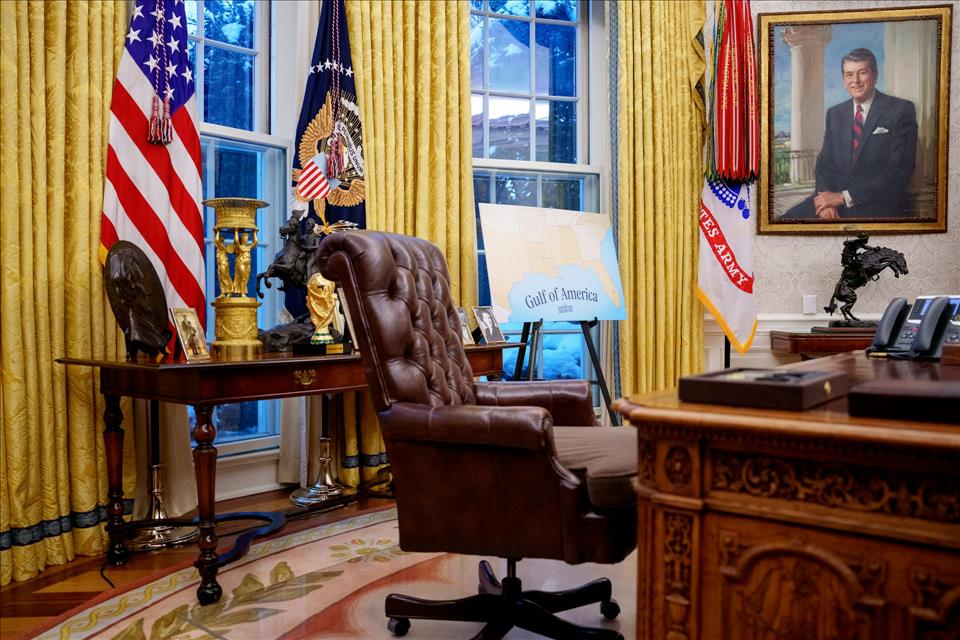
From Washington's Burned Letters To Trump's Missing Transcripts, Partial Presidential Records Limit People's Full Understanding Of History
But it is already clear that most Americans will not be able to read exactly what Trump has said, as they have with previous presidents, during his current term in the White House.
The White House has removed the official transcripts of Trump's public remarks from its government website, NBC News reported in May 2025, replacing the written transcripts with select videos and audio of Trump's public appearances.
White House officials told NBC News that this switch should help people get a fuller, more consistent and accurate sense of Trump by watching and listening to him, rather than reading what he says verbatim at official events.
Government stenographers are also still recording and transcribing all of Trump's remarks, though these are no longer being published on the White House's website or elsewhere. It is not clear where or how those transcriptions are being saved.
For years, translators, reporters, students, historians and presidential scholars like me have used official presidential transcripts to understand a president's exact words and track government decisions. Without these written transcripts, it becomes harder to get the full story of exactly what the president has done or said.
President Donald Trump, joined by members of his cabinet, delivers a statement on natural disaster preparedness in the Oval Office at the White House on June 10, 2025. Anna Moneymaker/Getty Images A partial history
A nation's history is etched in its records. The preservation of official proceedings provides the bedrock for understanding a country's past and navigating its future.
A growing chorus of historians, public officials and transparency advocates is raising alarms about how the Trump administration is curating and potentially manipulating the government's records and actions.
The White House's recent decision to not share official, written transcripts of what the president has said is not the first time this issue has emerged under Trump.
As I wrote in 2021 , the first Trump administration did not consistently submit the transcripts of the president's political rally speeches to the National Archives , as was the custom with previous presidents. The National Archives is an independent government agency within the executive branch that preserves the nation's historical records .
This official recordkeeping is important, and it's more than a tradition – it's a legal obligation. A law called the Presidential Records Act of 1978 says that everything a president does in office – from making speeches to writing emails – belongs to the public.
This includes not just formal speeches, but also public remarks and oral exchanges, which are traditionally included in a compilation of presidential documents .
My examination of this compilation for 2025 appears to show a gap in such records from mid-April 2025 onward. While the transcript of Trump's full remarks when speaking with Italian Prime Minister Giorgia Meloni was published on this government site on April 18, for example, publicly available documents from May only include a checklist of White House press releases, a digest of White House announcements and a list of acts that the president signed into law.
In the absence of complete official records from government sources, external, independent organizations that also monitor the presidency, like The American Presidency Project at the University of California, Santa Barbara, have become crucial repositories.
The American Presidency Project diligently logs and, when transcripts are unavailable, provides video of public presidential messaging, striving to create as complete a record as possible for all curious viewers and readers.
Workers secure scaffolding on the side of the National Archives building in Washington on April 2, 2025. Roberto Schmidt/AFP via Getty Images Washington's letters up in flames
The fight over keeping an honest record of presidents is a problem that comes up again and again in American history.
Perhaps the most powerful example of losing historical records comes from the country's very first president, George Washington. He knew he was setting an example for all future presidents and kept very careful records. He wanted to leave a complete story of his life and his work for the future.
But there is very little of it left.
After Washington died, his wife, Martha, burned most of the letters they wrote to each other to keep their lives private.
Washington left his official papers to his nephew, Supreme Court Justice Bushrod Washington. But Bushrod gave many of them to Chief Justice John Marshall, who was writing a book about the president. The papers were not treated carefully, and many were damaged. To make matters worse, Bushrod would often tear off scraps of Washington's writings and give them to people as souvenirs.
The result is that Americans have an incomplete picture of their first president. What now exists is a weaker version of the real story, created more by what other people did than by what Washington himself had planned.
Memories fade, and people are not around forever.
The main way that the U.S. can preserve its story is through accurate records. The current arguments over saving transcripts and official papers are about more than just rules. They are about the future. The records that Trump and other presidents leave behind will decide if people in the future see them as they really were, or just how they wanted others to view them.

Legal Disclaimer:
MENAFN provides the
information “as is” without warranty of any kind. We do not accept
any responsibility or liability for the accuracy, content, images,
videos, licenses, completeness, legality, or reliability of the information
contained in this article. If you have any complaints or copyright
issues related to this article, kindly contact the provider above.


















Comments
No comment